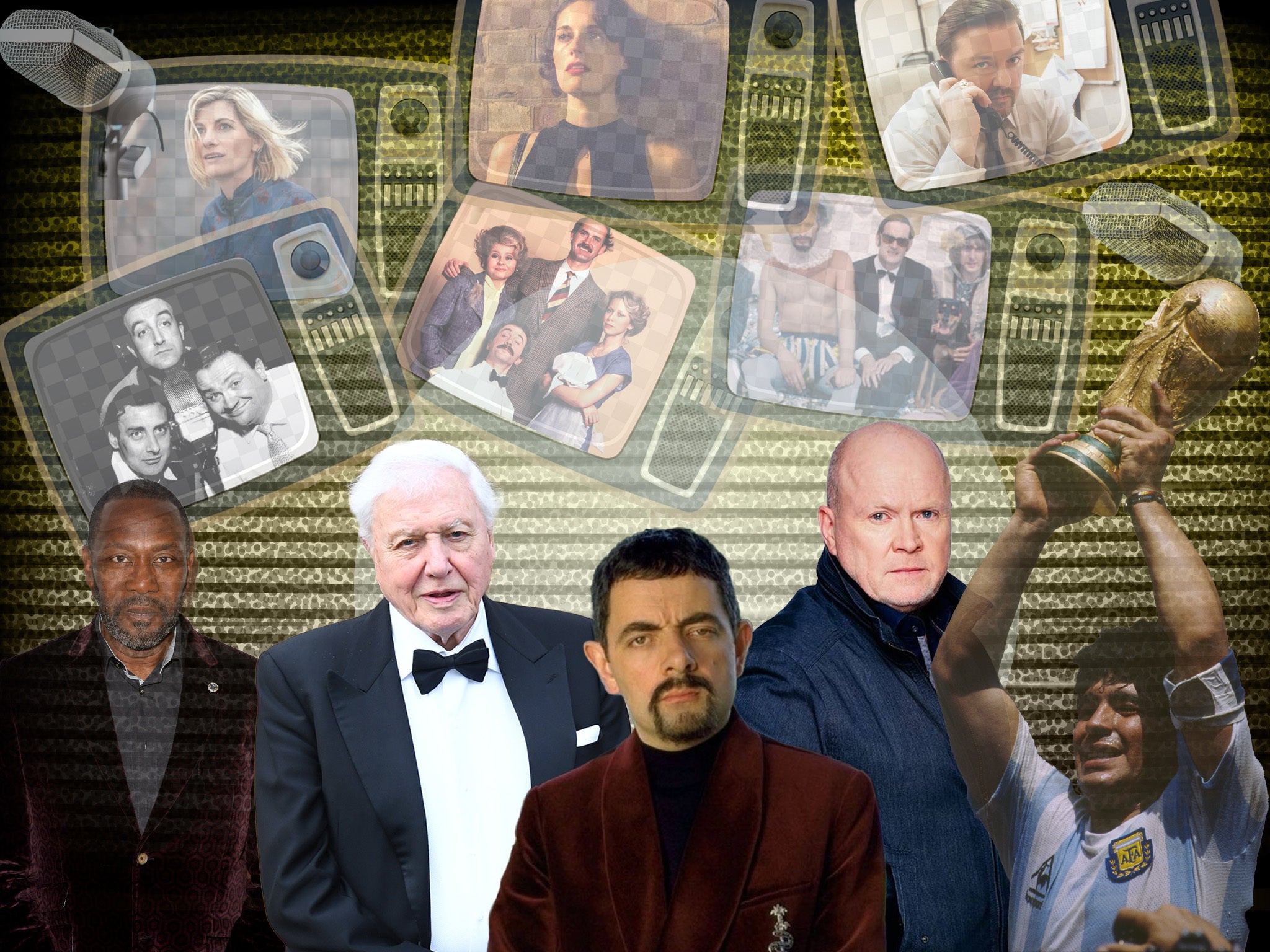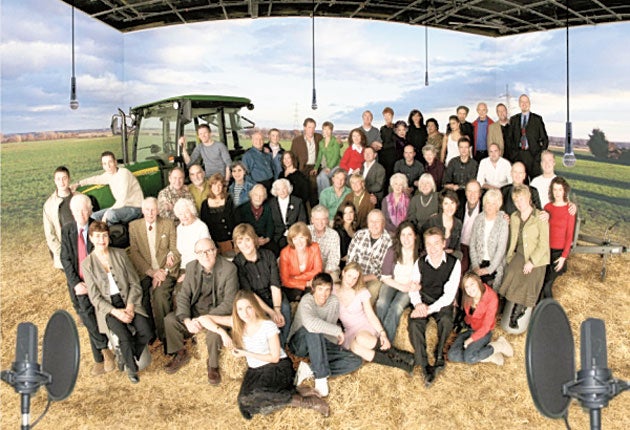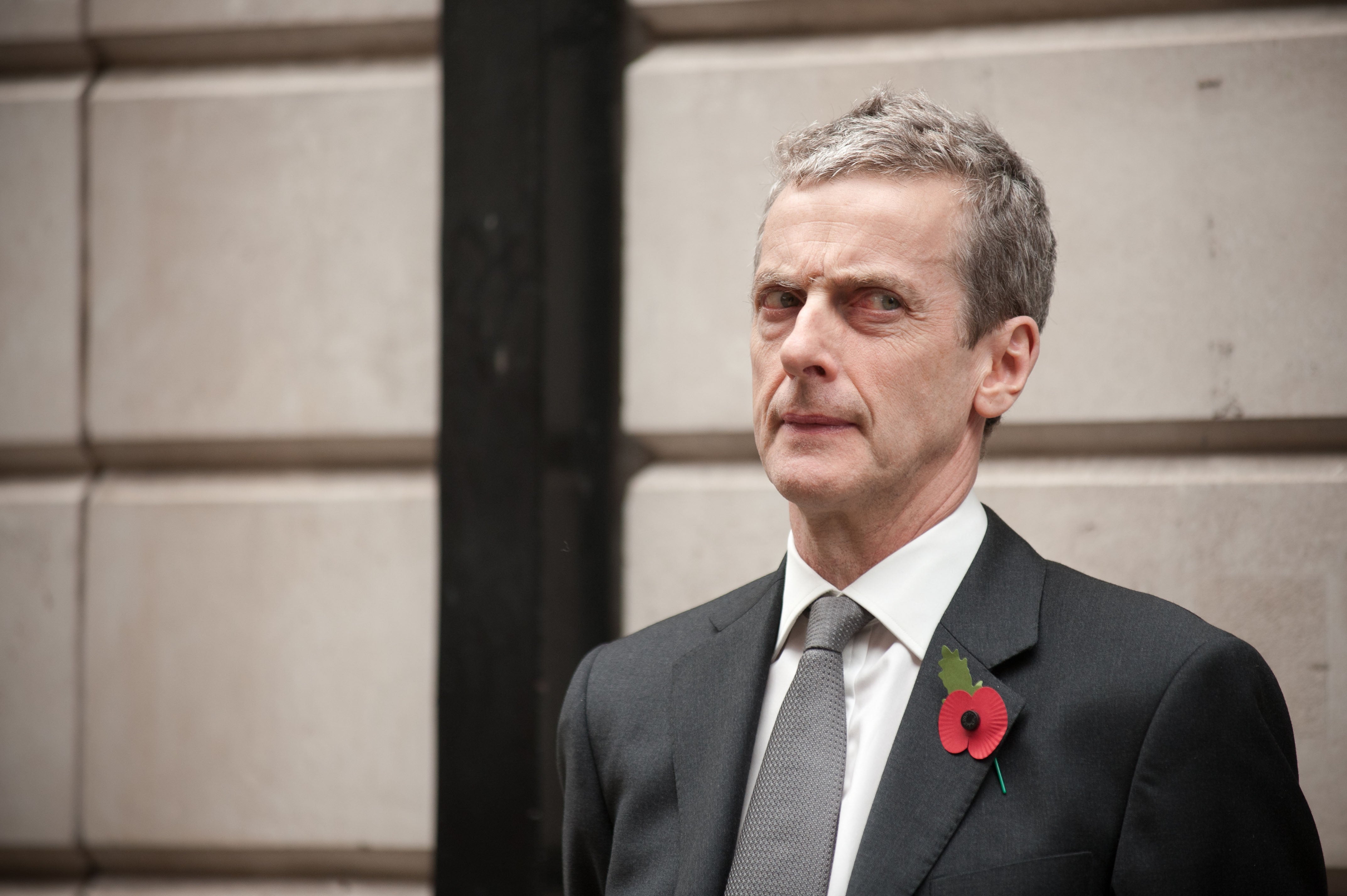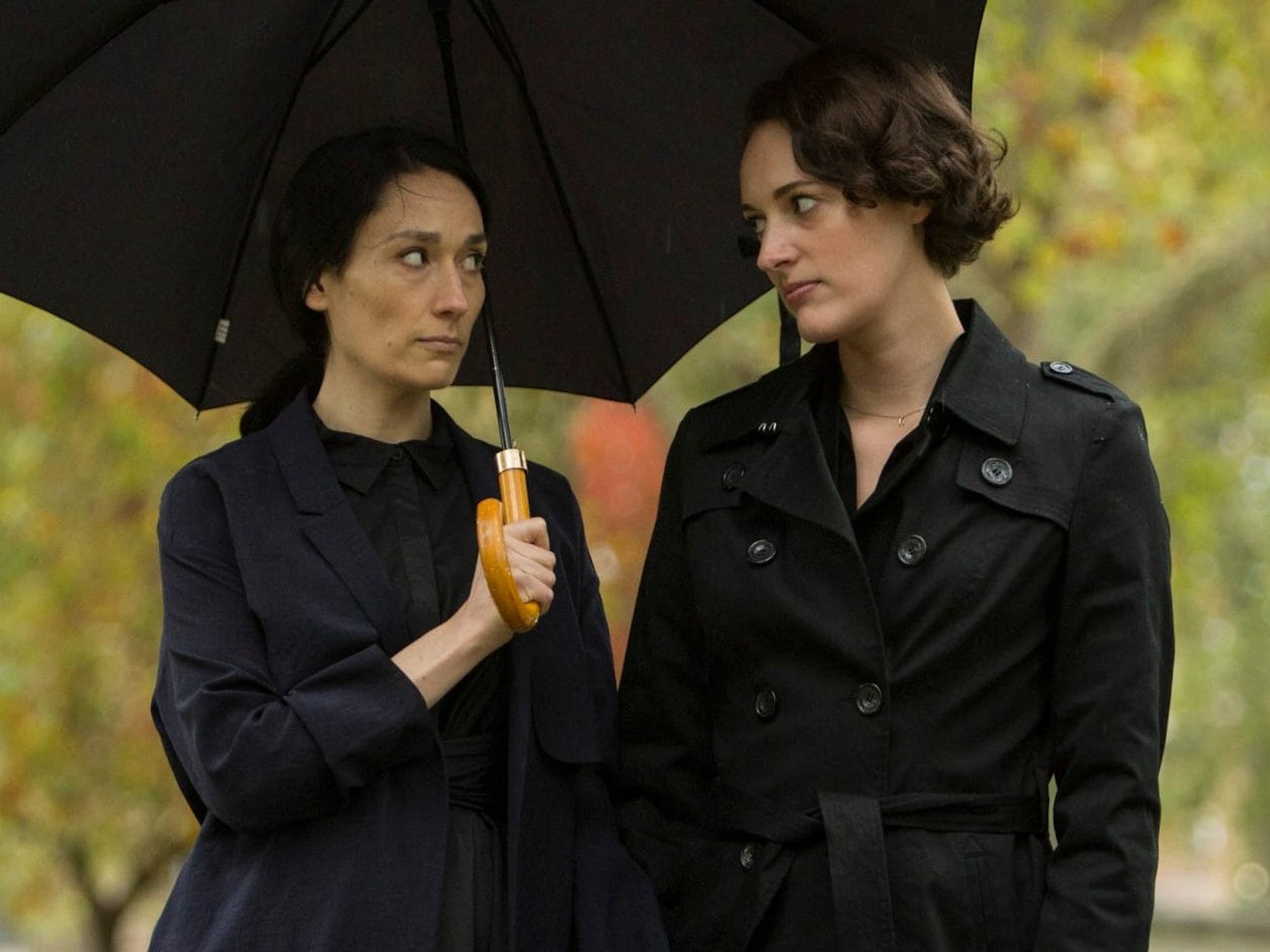‘You can blame the BBC – because it’s yours’: The past, present and uncertain future of the Beeb
The British Broadcasting Corporation has been with us for 100 years – some of its earliest shows are still with us – but will this national institution survive if the government throws it to the mercy of market forces. Louis Chilton explores its rich history and cultural impact


Your support helps us to tell the story
From reproductive rights to climate change to Big Tech, The Independent is on the ground when the story is developing. Whether it's investigating the financials of Elon Musk's pro-Trump PAC or producing our latest documentary, 'The A Word', which shines a light on the American women fighting for reproductive rights, we know how important it is to parse out the facts from the messaging.
At such a critical moment in US history, we need reporters on the ground. Your donation allows us to keep sending journalists to speak to both sides of the story.
The Independent is trusted by Americans across the entire political spectrum. And unlike many other quality news outlets, we choose not to lock Americans out of our reporting and analysis with paywalls. We believe quality journalism should be available to everyone, paid for by those who can afford it.
Your support makes all the difference.How do we possibly begin to sum up 100 years of the BBC? It often feels like an immutable part of our country, like tea, or motorways, or oxygen. How do you talk about that? While it has changed and grown enormously over the decades, the BBC has long been Britain’s defining cultural force, our foremost way of communicating with the outside world, and with ourselves. It is exactly this omnipresence, however, which has left it at perennial risk of being taken for granted – both by the British public and by those in charge of it.
It wasn’t always this way, of course. The British Broadcasting Company Ltd, when it launched on 18 October 1922, was a different animal. On 14 November, it made its inaugural broadcast, on the day before the general election. The day after, it broadcast the results – the Conservative party retained power, with Labour leapfrogging the liberals to become their main competitors. (Of course, this was long before the days of the BBC’s famous Swingometer.)
“In 1922, we can already see the DNA of what the BBC is as a cultural project – not just a piece of technology, but a set of ideas about how to improve people’s lives,” says David Hendy, a former BBC producer and author of books including The BBC: A People’s History. “It was something with a cultural and moral vision.”
It may have been born in 1922, but many see 1926 as the year that the Beeb came of age. A general strike, held in support of the coal miners, brought the newspapers to a halt. Overnight, the British Broadcasting Company became essential for anyone wanting to keep up with news. At the end of the year, the British Broadcasting Company was dissolved and reformed into what we now know as the BBC. But the strikes, and the BBC’s coverage of them, raised new questions about the mission of the broadcaster. “It’s clearly a moment where we can see the vulnerability of the BBC to the threat of government takeover,” says Hendy. “And we can also see the BBC acting cautiously and changing the news coverage in response to that threat. So the BBC survives. But it also reveals that the government has the ultimate power to take it over in conditions of national emergency.”
Where did the BBC go from there? The BBC Television Service launched properly in 1936, after a few years of experimental broadcasts from the basement of Broadcasting House. Its programming ranged from Mickey Mouse cartoons to the King’s coronation in May 1937 – though the channel shut down for the duration of the Second World War. The war proved transformative – not just in disseminating the BBC’s quickly expanding product around the world, but in allowing the Beeb itself to adopt a more cosmopolitan identity, as European refugees and other immigrants came to London, and began working for it. When BBC TV finally returned to the airwaves, presenter Jasmine Bligh greeted viewers by saying: “Good afternoon everybody. How are you? Do you remember me?”
As Britain entered the latter half of the century, wartime scarcity slowly gave way to prosperity – which had its own ramifications for the BBC. Perhaps the main way this manifested was in the burgeoning market for household TVs. Queen Elizabeth’s coronation in 1952 was watched by more than 20 million people in the UK alone. (I’m sure you’d have got some very strange looks if you told anyone watching then that 70 years later, that very same queen would be sharing the BBC’s screen with a computer-generated Paddington Bear.)
But TV hadn’t taken over just yet. The BBC’s radio stations continued to innovate, with the 1940s and early 1950s seeing the launch of several of the broadcaster’s best-loved series. Desert Island Discs launched in 1940, and – somewhat incredibly – remains one of the world’s foremost celebrity interview series to this day. The Archers and The Goon Show both began in 1951, proving that the BBC could be just as adept at upright dramas as subversive and boundary-pushing comedy.

In the 1950s, the Beeb started to spread its wings when it came to TV, through programmes like The Quatermass Experiment (1953), its one-off adaptation of Nineteen Eighty-Four (1954), or police procedural Dixon of Dock Green. Hancock’s Half-Hour (1954 to 1961), meanwhile, proved hugely influential in the development of what was to become the modern sitcom. David Attenborough also began his seven-decade career as a nature documentarian, and was pivotal in establishing the BBC Natural History Unit in 1957.
As the decades passed, the BBC continued to enjoy a greater diversity of programming. Attenborough became controller of BBC Two in 1965, being promoted to overall director of programmes four years later. Sir Hugh Carleton Greene’s appointment as director-general in 1960 heralded a new era of ambitious and provocative commissions. “Greene establishes the idea that the BBC should be engaged in sometimes offending people,” says Hendy. “He said to his staff, ‘If you’re not offending, disturbing, or unsettling the audience some of the time you’re not doing your job properly.’”

Watch Apple TV+ free for 7 days
New subscribers only. £8.99/mo. after free trial. Plan auto-renews until cancelled

Watch Apple TV+ free for 7 days
New subscribers only. £8.99/mo. after free trial. Plan auto-renews until cancelled
After a brief spell of being known as BBC TV, the former BBC Television Service was renamed BBC1 in 1964, to coincide with the launch of BBC2. The new channel offered a platform for programming that was a little more off the beaten track – from dystopian TV plays like The Year of the Sex Olympics to docuseries such as Civilisation or Horizon. The BBC’s primary channel, meanwhile, moved from strength to strength, with the 1960s bringing programmes including Z-Cars, That Was the Week That Was, Top of the Pops, Tomorrow’s World, Cathy Come Home, Monty Python’s Flying Circus and Dad’s Army. Plus, of course, a little sci-fi folly called Doctor Who.
In the 1970s, the BBC started feuding with a Labour government that first floated the idea of abolishing the licence fee. Funds were slashed. Despite this, the decade introduced many of the BBC’s best-loved series: The Old Grey Whistle Test, Porridge, Are You Being Served?, Fawlty Towers, Ways of Seeing, Not the Nine O’Clock News, Grange Hill and Question Time among them. Behind the scenes, of course, the company was also being tarnished by heinous sexual abuse which did not surface until decades later.
There’s only twice, I think, that the BBC’s very existence has been challenged
The era of Margaret Thatcher was a notoriously difficult time, with the hard-right Conservative government often clashing with the BBC. “There’s only twice, I think, that the BBC’s very existence has been challenged,” says Jean Seaton, official historian of the BBC. “And the first time was Mrs Thatcher, who was actually sort of a BBC supporter. She came in with a theory that it was really a subsidised state broadcaster, and therefore the market would be doing better.”
The Falklands War further drove a wedge between the Thatcher government and the Beeb. News presenters were reportedly instructed to remain neutral during the conflict, avoiding pronouns such as “our” in the descriptions of British forces. Thatcher claimed in her memoirs that the BBC, along with ITV, was “assisting the enemy” in its reporting of British troop movements.
Thatcher’s argument fell apart, however, after the publication of the Peacock Report in 1985. Written at Thatcher’s behest, the report, devised by a committee, comprised an advisory review of the BBC’s financing. Contrary to expectations, however, the committee concluded that the licence fee should not be scrapped, describing it as the “least worst” option.
There has always been an impressive multifariousness to the BBC’s non-news programming. It has always been capable of airing some real, grade-A rubbish, of course – The Black and White Minstrel Show shockingly enjoyed a 20-year run on the BBC, ending somehow as recently as 1978. But it was also home to genre-defining comedies (shows like Fawlty Towers gave way to later triumphs such as The Office and The Thick of It) and pioneering dramas (Alan Bleasdale’s Boys from the Blackstuff; Alan Bennett’s Talking Heads; Dennis Potter’s The Singing Detective).

The BBC has always enjoyed a push-and-pull relationship with overseas TV. American exports like Kojak and Starsky and Hutch became primetime staples in the 1970s, but audiences gradually came to demand the more relatable dynamics of homegrown fare. As the decades have passed, however, the BBC has remained an essential port of call to find many of the best foreign series, from US dramas like The Wire, or Mad Men, to Scandinavian thrillers like The Killing.
Outside of this, it’s also shown itself to be world-beating in everything from sports, to documentaries, to musical events. The variety is, frankly, staggering. It almost defies logic that something like Mrs Brown’s Boys – once described by The Independent as “so awful that it’s physically painful to sit through” – can air one week, and something like Stewart Lee’s Comedy Vehicle the next. Any other broadcaster would be accused of not knowing its audience. But that’s the whole deal: the BBC’s audience is damn near everybody.
The key to the BBC’s enduring reputation may lie in its pretty much unparalleled continuity. Many of the most popular shows of today have run for decades. Astronomy series The Sky at Night holds the record for being the longest-running programme with the same presenter in television history, having been hosted by Sir Patrick Moore, from its first broadcast on 24 April 1957 until 7 January 2013. Match of the Day; Panorama; EastEnders; Have I Got News for You: certain BBC series became a living, evolving part of the culture, something that successive generations all grew up watching, and were able to put their own spin on.
That’s not to say it’s all been smooth sailing. The BBC has endured its fair share of scandals over the years; to some extent, this is to be expected with a media organisation of its huge, unwieldy scale. But no one expected what came to light in October 2012, when veteran presenter Jimmy Savile, who had died a year previously, was found to have been a heinous and prolific paedophile while under the auspices of the BBC. Questions surfaced over a Newsnight investigation, with claims that the BBC had suppressed the story. “The whole process was deeply traumatic,” says Hendy. “It was as if the BBC was eating itself. By the time you’ve got Panorama investigating Newsnight, you know the BBC is in trouble.”
Conservative and Conservative-led governments have imposed severe reductions in the BBC’s existing capacity
While it is undoubtedly the blackest mark on the BBC’s reputation, the Savile scandal has been far from the only thing to rock confidence in the BBC in recent years. Since 2018, the BBC has seen public trust in it plummet from 75 per cent to 55 per cent (according to Reuters ), though it remains the nation’s most trusted news source.
The election that brought the Tories into power in 2010 has seen the Beeb squeezed from both sides. For many Conservatives, it’s a matter of ideology. Back in 2004, a think tank run by Dominic Cummings (an influential Tory adviser before his ignominious mid-pandemic downfall) stressed the need for the British right to “undermine the BBC’s credibility”, deeming it the “mortal enemy” of the party.
“Especially since 2019, there’s been a cultural element, criticising the BBC for being part of a ‘liberal metropolitan elite’ and so on,” says Hendy. “This is an attempt, I think, to make the public fall out of love with the BBC. And so I think that the political climate in recent years is really, again, a poisonous one for the BBC to deal with.
The Tories have exerted massive pressure on the BBC, with plans to abolish the licence fee completely set to come into play within five years. “There’s been a massive reduction in the BBC’s income at a time when audiences are increasingly viewing content online and on demand,” explains Tom Mills, author of The BBC: Myth of a Public Service. “Adapting to this technological shift required significant political support, but Conservative and Conservative-led governments have not only refused to support such a change, they have imposed severe reductions in the BBC’s existing capacity.”

The problem is, the strategy it has opted for can broadly be described as one of appeasement, rather than resistance. Throughout Jeremy Corbyn’s time as Labour leader, the service drew criticism from figures on the left for perceived bias in its coverage. Among the most substantial complaints was Andrew Neil’s 2019 pre-election interview with Corbyn – which saw the Labour leader subject to a tough, combative grilling, while Boris Johnson failed to appear on the programme in counterpoint. Back in 2016, researchers from the Media Reform Coalition conducted a quantitative analysis of TV news coverage, finding that BBC News at Six gave Corbyn’s critics twice as much airtime as his supporters, and gave much greater prominence to issues favoured by his critics.
“While the BBC has of course changed a great deal in the last 100 years, its political orientation hasn’t changed nearly as much as you might expect,” says Mills. “It’s still overwhelmingly orientated towards those in and around formal politics. So Whitehall and Westminster; including the lobbyists, lobby journalists, think tankers, political consultants, pundits and so on. And as politics has shifted rightwards, so the BBC has followed.”
It would, argues Mills, take a “very radical shift in the organisational structure of the BBC” as well as “significant political support” to win back the faith of many young left-wing people. “That group of people are basically locked out of the formal political system, and that means their interests and perspectives aren’t well represented in BBC news and current affairs programmes,” he says. “If you combine that with the shifts in media consumption habits, it’s a legitimacy timebomb for the BBC.”
For the BBC, the problem with securing young people’s attention is twofold: not just ideological, but logistic. The BBC’s current crisis comes as the future of broadcast TV as a whole is itself in limbo. While the stewardship of John Birt in the 1990s was controversial in many ways, it saw the BBC make savvy investments in the online frontier, to some extent “future-proofing” the BBC.
Of course the BBC will have confrontations... Because it’s yours. I don’t really throw my slippers at Sky News. Because it’s not mine
Much of what the BBC produces is still vital, and universally popular, even among young people. Attenborough’s nature documentaries continue to somehow reach new heights with each new series; shows like Fleabag and Peaky Blinders have been massive commercial hits around the globe. Few could forget the BBC’s astoundingly comprehensive coverage of the 2012 Olympics. “There are lots of different routes back to the BBC,” says Hendy, “for those who say, and act as if, the BBC is not part of their lives.”
“Of course the BBC will have confrontations,” Seaton says. “Of course it will be blamed by everybody. Partly because you can blame it. Because it’s yours. I don’t really throw my slippers at Sky News. Because it’s not mine.”
The BBC is, of course, just one uncertain entity in a country where uncertainty and chaos seem to rule every sphere of public life. As the UK prepares to enter a brutal winter, there’s a chance the BBC may be needed more than ever. “Look at the BBC during Covid,” says Seaton. “Radio audiences zoomed up. As we go into the winter, do we think it’s going to be useful to tell you whether you’re going to have any electricity? Or what you do with your son who’s on a ventilator? I doubt the government’s begun to think its way through any of this yet. We’re going to need that kind of public service.”
With Labour seemingly poised for a landslide victory at the next election, there’s reason for cautious optimism that the licence fee will remain, and the BBC will continue to adapt and survive. The problems, however, run deeper than just one government. A hundred years may make for a nice plaque. But the question is where it goes from here.



Join our commenting forum
Join thought-provoking conversations, follow other Independent readers and see their replies
Comments